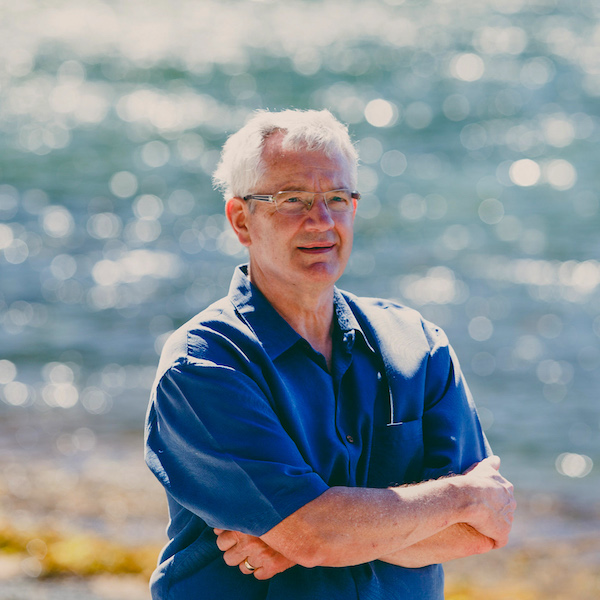Sea Shepherd “unethical” for exploiting death of baby Orca
Pacific Salmon Foundation shoots down Sea Shepherd’s claim while taking aim at critics of a study it supports.
By Fabian Dawson
SeaWestNews
The Pacific Salmon Foundation (PSF) has fired a broadside at the American eco-militant group, Sea Shepherd, calling it “unethical” for its attempt to link the recent death of a baby Orca whale to the BC fish farming industry.
In a letter to SeaWestNews, PSF also took aim at the critics of a new study which claims that the Piscine orthoreovirus (PRV) virus may cause disease in Chinook salmon in British Columbia.
Dr. Brian Riddell, President and CEO of the Pacific Salmon Foundation (pictured) said in the letter: “First off, for anyone to exploit the recent death of a baby Orca is unconscionable. Regrettably there are multiple possible causes for the little one’s death. PSF does not support the speculation of the American press release cited in the (SeaWestNews) article.”
Sea Shepherd in a press release on July 26 used the new and contentious study claiming that it “could be a missing link to explain why resident whales are starving to extinction.”
The press release listed anti-salmon farming activist Alexandra Morton as a contact. She is currently onboard the RV Martin Sheen leading a heavily foreign-funded campaign to shut down BC’s $1.5 billion sustainable open-net fish farming industry, which provides thousands of jobs in coastal communities
SeaWestNews reported on the misleading Sea Shepherd press release in an article entitled Whale of a whopper by anti-fish farm activists on May 26.
The article included comments from the Canada’s Centre for Science Advice (CSA), the BC Centre for Aquatic Health Sciences (BCCAHS) – an independent lab – and the University of British Columbia all of whom challenged the theory that PRV causes disease in salmon in B.C.
Others quoted in the article, who questioned the study include, Dr. Ian Gardner, Canada Excellence Research Chair in Aquatic Epidemiology, who is part of the Strategic Salmon Health Initiative and Dr. Hugh Mitchell, an aquaculture veterinarian, with more than 25 years of experience.
Dr. Riddell of PSF, who was part of the study along with Dr. Kristi Miller, a Department of Fisheries and Oceans (DFO) scientist, and Emiliano Di Cicco, the lead author, stated that he is concerned with the way the experts quoted by SeaWestNews have portrayed the scientific process related to the study of piscine reovirus (PRV) and its potential effects on wild Pacific salmon.
“To discredit published research requires more much more than selected “opinions” and “assumptions” used in (the) article.”
“This study clearly demonstrates the susceptibility of Chinook salmon to PRV. However, the study does not comment on impacts in natural populations since the fish sampled were all from open-net pen salmon farms, and from DFO’s own regulatory monitoring program.
“We don’t know all the answers yet, but we are following long established scientific methods, which is the only true way to discover what is really going on with our wild Pacific salmon,” Dr. Riddell said.
Related Links
PRV not a salmon killer in B.C.: study
Alaska hatchery pink salmon imperil wild stocks
Letter to SeaWestNews
Disregard for scientific process does not “Discredit” valid research
The article by Fabian Dawson (SeaWestNews, July 26, 2018) is both ethically wrong and factually incorrect.
First off, for anyone to exploit the recent death of a baby Orca is unconscionable. Regrettably there are multiple possible causes for the little one’s death. PSF does not support the speculation of the American press release cited in the article.
But of equal concern is the way that Mr. Dawson has portrayed the scientific process related to the study of piscine reovirus (PRV) and its potential effects on wild Pacific salmon. To discredit published research requires more much more than selected “opinions” and “assumptions” used in his article.
The article criticized is one outcome of a comprehensive research study (the Strategic Salmon Health Initiative, SSHI) of all pathogens present in Pacific salmon and the potential effect of disease as a cause of the decline in abundance of Pacific salmon. The research includes wild and cultured salmon (hatchery and aquaculture based) and novel scientific methods to advance our understanding of disease. When the SSHI discovered PRV and Heart and Skeletal Muscle Inflammation disease in Atlantic salmon in BC coastal waters; the clear and logical next step was to examine if PRV was a risk to our Pacific salmonids. This study clearly demonstrates the susceptibility of Chinook salmon to PRV. However, the study does not comment on impacts in natural populations since the fish sampled were all from open-net pen salmon farms, and from DFO’s own regulatory monitoring program.
We don’t know all the answers yet, but we are following long established scientific methods, which is the only true way to discover what is really going on with our wild Pacific salmon.
Dr. Brian Riddell
President and CEO, Pacific Salmon Foundation

